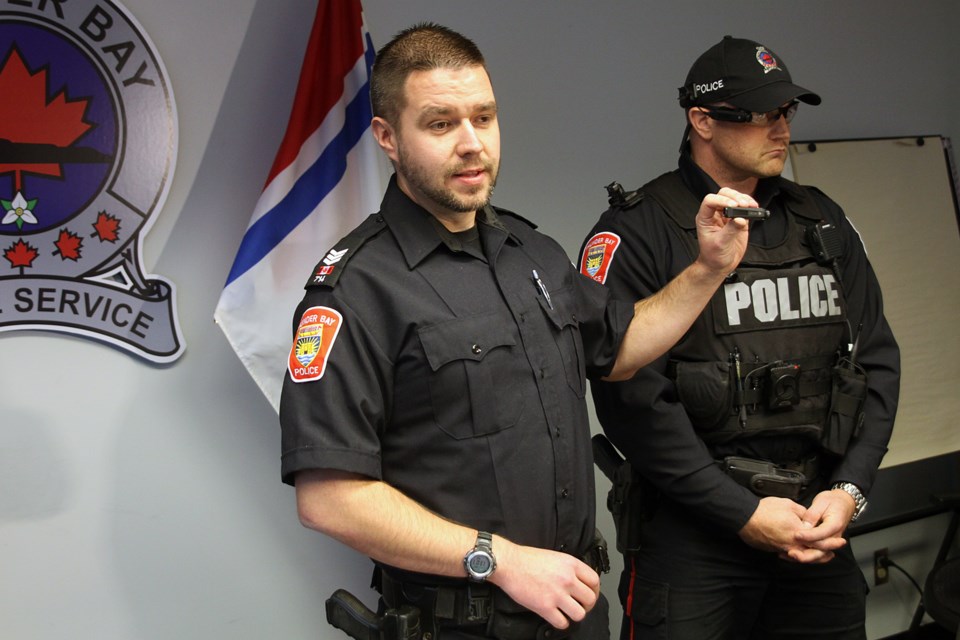THUNDER BAY – A small number of city police officers will be carrying an extra set of eyes with them for the next few months.
The Thunder Bay Police Service’s six traffic unit officers will be wearing body cameras, along with in-car cameras in their vehicles, as part of a pilot project announced on Wednesday.
The body worn cameras can be affixed either to a pair of eyeglasses, on the top of a baseball cap or to the shoulder epaulette. They are activated by a device attached to the officer’s vest.
Traffic Sgt. Gordon Snyder said the officers will be required and expected to record all interactions with people in public spaces and internal policies are being developed to regulate the use of the cameras.
“There’s an overwhelming support from the policing community to have body worn cameras,” Snyder said.
“Public trust and accountability for the police services is important. That’s important for me, that’s important for every officer in our service for the public to be able to see what we do on a daily basis if the need arises for that is very important.”
Footage will be recorded beginning 30 seconds prior to the officer activating the cameras, until the officer terminates the recording at the conclusion of the interaction.
Snyder said the cameras could provide strong evidence in cases where officers observe a driver using a cellphone while behind the wheel or when a vehicle runs a red light.
“It’s going to enhance our ability to collect evidence,” Snyder said.
“As you can imagine, a picture is worth 1,000 words. When we have video of an offence that was committed and it’s played for the court process, it makes it a lot clearer for a justice of the peace or a judge to see exactly what happened and what transpired. There is no question as to what did the officer actually see when it’s a video of what the officer actually saw.”
Thunder Bay police had previously explored having officers wear body cameras in 2012 and 2013, conducting similar pilot projects.
Snyder said one of the biggest hurdles to having cameras widely used was managing and storing the information and data they collected. This pilot project includes the use of an encrypted cloud storage system.
“As technology changes and as we have access to more technology and new ways of doing things, it’s becoming easier for us to manage this information and manage large volumes of information,” Snyder said.
“We’re working closely with the Crown Attorney’s office as well. Soon to be gone are the days where we’re actually burning DVDs and CDs and forwarding them to the court. This is all going to be done electronically.”
Officers are expected to start utilizing the cameras on Nov. 13 and the pilot is scheduled to run until the end of February 2019. The project is being run at no cost to the police service, as the equipment was provided by the manufacturer.
